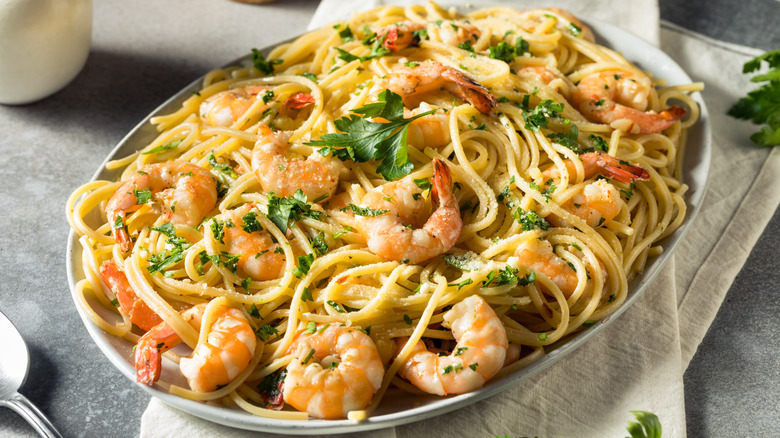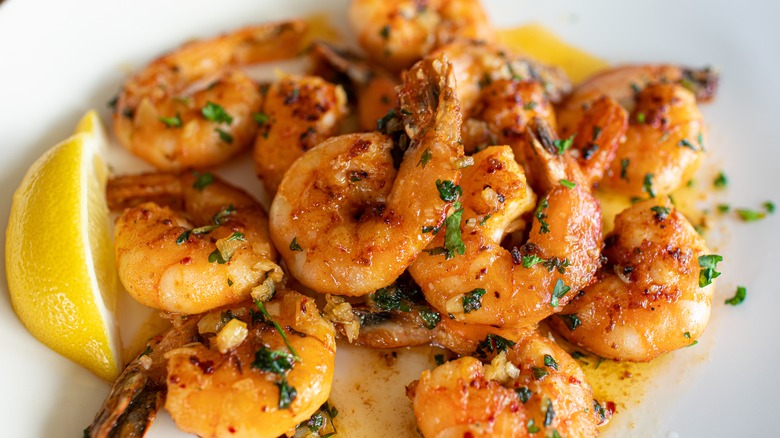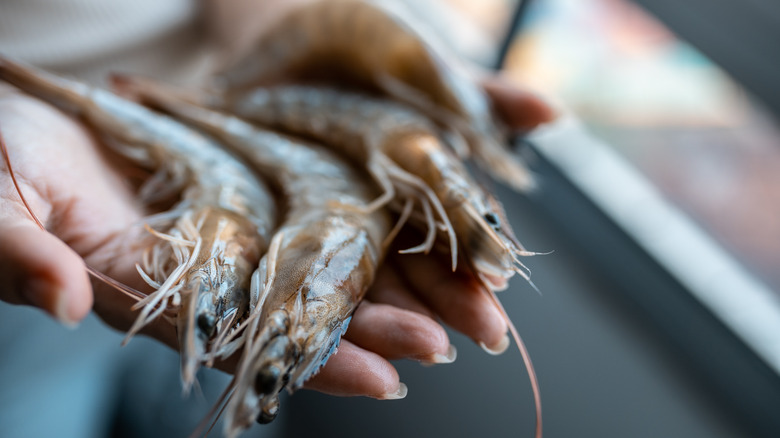A Little Lemon Juice Can Make The Best Of Overcooked Shrimp
If there's one protein staple to have in your kitchen, it should be shrimp. Whether you're using these small crustaceans for scampi or a salt and pepper shrimp stir-fry, shrimp can be quickly seared, baked, or boiled to perfection, giving home cooks easy access to the flavors of the sea. While their small size makes them incredibly convenient for any last-minute meal, shrimp are prone to overcooking, which can make their texture rather tough. However, if you ever end up with an overcooked batch of shrimp, you can make them taste more palatable by adding a dash of lemon butter sauce instead of discarding them immediately.
While a simple combination of citrus and fat cannot reverse overcooking and tenderize shellfish, it can certainly enhance its marine flavors and help mitigate its lackluster mouthfeel. This sauce also complements a wide variety of dishes, such as pastas, seared vegetables, and salads. Just be sure to prepare this concoction in the same pan as your shrimp, as it will infuse with whatever savory bits remain at the bottom.
Spice up your lemon butter dressing with other condiments
Butter and lemon work wonderfully by themselves, but to really give your overcooked shrimp a fighting chance, consider spicing up the sauce so that it becomes truly irresistible. Adding a touch of chicken stock, garlic, or shallots can easily elevate the dressing. If you're feeling more adventurous with the sauce, try incorporating less common additions like Worcestershire sauce or olives. When trying to mask the unsavory taste of dry, rubbery shrimp, experimenting with different combinations to see what resonates best with you is a good idea.
The key to perfecting a lemon butter dressing lies in balancing its richness and tanginess to suit your specific taste. If you want to make this mixture stand out, try topping chewy shrimp with chimichurri butter and lemon. This complex blend of chili, herbs, and red wine vinegar becomes addictive over any protein dish, and can be easily customized with additional seasonings.
Check the shape of your shrimp during cooking
When it comes to cooking shrimp, taking preventive measures during the process will ensure you end up with shellfish that doesn't need salvaging. While preparing a batch of shrimp, monitor how much they have curled. Perfectly cooked shrimp generally resemble the letter C, while overdone ones tend to curl up into a tight ball. Also, keep an eye on their color; well-cooked shrimp are almost solid white.
To avoid overcooking these delectable crustaceans, consider following chef Ina Garten's shopping advice for buying shrimp: For recipes that use quick cooking methods such as stir-frying or deep-frying, buy smaller shrimp so they have less chance of burning. Larger shrimp can withstand higher and/or longer heat more easily, making them ideal for grilling or baking. Furthermore, opt for frozen shrimp over those available at the counter, as the former are actually fresher and therefore tend to have better flavor.



